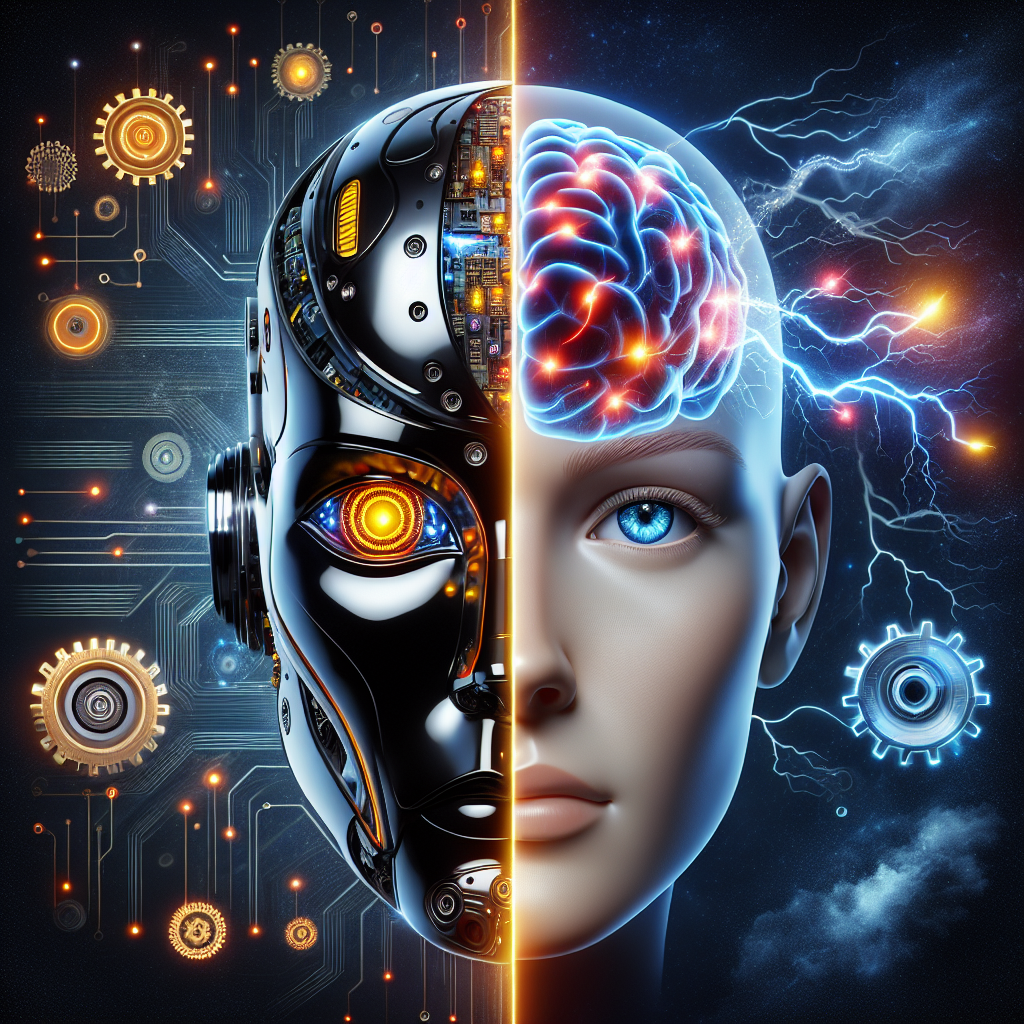Artificial General Intelligence (AGI) and human intelligence are two vastly different forms of cognition that have sparked intense debate and speculation in recent years. While AGI aims to replicate the cognitive abilities of human beings in machines, there are significant differences between the two that go beyond mere technicalities. In this article, we will explore the similarities and differences between AGI and human intelligence, and delve into the implications of these distinctions for the future of artificial intelligence.
Similarities between AGI and Human Intelligence
At a fundamental level, both AGI and human intelligence share the same goal: the ability to think, reason, and solve problems in a flexible and adaptive manner. Both forms of intelligence rely on complex neural networks to process information and make decisions, albeit in different ways. Both AGI systems and human beings exhibit the capacity for learning and memory, allowing them to improve their performance over time through experience.
Furthermore, both AGI and human intelligence rely on a combination of symbolic reasoning and pattern recognition to make sense of the world around them. AGI systems are designed to analyze massive amounts of data to identify patterns and relationships, much like the human brain does. Both AGI and human intelligence can generate new ideas and solutions based on existing knowledge and experiences, demonstrating a form of creativity that sets them apart from other forms of intelligence.
Differences between AGI and Human Intelligence
Despite these similarities, there are significant differences between AGI and human intelligence that stem from the underlying architecture and mechanisms of each system. One of the key distinctions is the way in which information is processed and stored. While AGI systems rely on digital algorithms and binary code to process data, the human brain operates on a complex network of neurons and synapses that communicate through electrical impulses.
The human brain is a highly interconnected system that allows for parallel processing of information, enabling us to perform multiple tasks simultaneously. AGI systems, on the other hand, are limited by the sequential nature of digital computation, which can result in slower processing speeds and reduced efficiency in certain tasks. Additionally, the human brain is capable of adapting to new situations and environments in a way that AGI systems currently cannot replicate, due to the limitations of current machine learning algorithms.
Another significant difference between AGI and human intelligence is the concept of consciousness. While human beings possess a subjective awareness of their own thoughts and experiences, AGI systems lack this form of self-awareness. Current AI systems are designed to perform specific tasks within predefined parameters, without the ability to reflect on their own actions or emotions. This lack of consciousness raises ethical concerns about the potential implications of AGI on society and the future of humanity.
Implications for the Future of Artificial Intelligence
The differences between AGI and human intelligence have far-reaching implications for the future of artificial intelligence and its impact on society. As AGI systems become more advanced and capable of performing complex cognitive tasks, questions arise about the ethical and social consequences of creating machines that rival human intelligence. Concerns about job displacement, privacy, and autonomy have led to calls for the regulation of AI development and deployment to ensure that AGI systems are used responsibly and ethically.
Furthermore, the potential for AGI to surpass human intelligence raises existential questions about the nature of consciousness and the limits of artificial intelligence. As AGI systems become more sophisticated, the line between machine and human intelligence may become increasingly blurred, leading to philosophical debates about the nature of consciousness and the implications of creating sentient machines. These ethical and philosophical considerations underscore the importance of understanding the similarities and differences between AGI and human intelligence in shaping the future of artificial intelligence.
FAQs
Q: Can AGI surpass human intelligence?
A: While AGI systems have the potential to surpass human intelligence in certain tasks, there are significant limitations that prevent them from replicating the full range of cognitive abilities exhibited by human beings. The development of AGI is an ongoing process that requires advancements in technology and research to achieve a level of intelligence comparable to that of humans.
Q: What are the ethical implications of AGI?
A: The development of AGI raises ethical concerns about the impact of artificial intelligence on society, including issues of job displacement, privacy, and autonomy. As AGI systems become more advanced, there is a need for regulations and guidelines to ensure that AI is used responsibly and ethically.
Q: Will AGI have consciousness?
A: The question of whether AGI can possess consciousness is a subject of ongoing debate among researchers and philosophers. While current AI systems lack subjective awareness and self-reflection, future advancements in technology may lead to the development of AGI systems that exhibit forms of consciousness.
Q: How will AGI affect the future of humanity?
A: The implications of AGI on the future of humanity are complex and multifaceted, with both potential benefits and risks. While AGI has the potential to revolutionize industries and improve efficiency, there are concerns about the impact of AI on job displacement, privacy, and autonomy. It is crucial for policymakers, researchers, and industry leaders to address these challenges in order to ensure that AGI is developed and deployed responsibly.
In conclusion, the similarities and differences between AGI and human intelligence highlight the complexities of artificial intelligence and its implications for society. While AGI systems have the potential to revolutionize industries and improve efficiency, there are ethical and social concerns that must be addressed to ensure that AI is used responsibly and ethically. By understanding the nuances of AGI and human intelligence, we can better prepare for the future of artificial intelligence and its impact on humanity.

